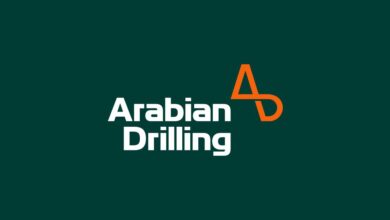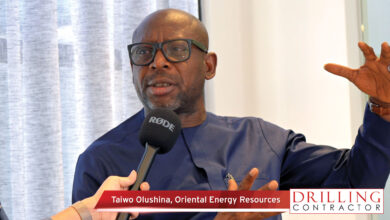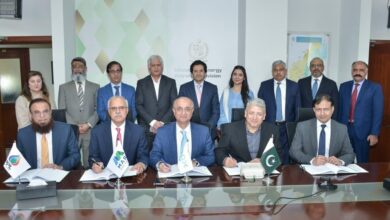Shell sounds the call for industry to collaborate, set foundation for data-centric ways of working
Grassroots change needed across the energy industry to integrate new ways of working into organizations
By Linda Hsieh, Editor & Publisher, and Sarah Junek, Associate Editor
Two Shell engineers issued a “call to arms” at the 2019 Offshore Technology Conference on 7 May for the industry to come together to accelerate the industry’s digital revolution.
“We can’t do it alone, and we can’t work in a silo because we’re so interconnected,” said Kiran Krishna, Shell Systems Engineering Architect. “Digital is all about being interconnected. We all need to come together to solve these problems.”
Not only is it impossible for a single company to undertake this journey alone, but Mr Krishna also emphasized the need for the oil and gas industry to move toward a data-centric delivery of value. This means that data has to be the main asset, agnostic to technologies or applications.
“It’s not about changing documents to PDFs; it’s all about driving the value… How can you move your business to a digital business and also create value-producing opportunities?”
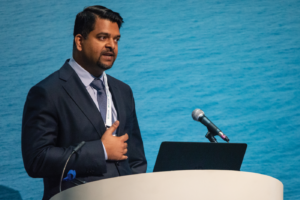
Unless the oil and gas industry takes action now, it will leave itself open for external disruption, he added. While disruption can be a good motivator for change, it can also have an existential impact on organizations. “How many of us won’t even exist if we don’t go down this journey?” he asked.
Mr Krishna’s co-presenter, Binay Anand, Capital Projects and Engineering Support Manager with Shell, noted that the industry is not facing a single roadblock in this digitalization journey but rather a combination of three. “Process, technology and people – all together – are the main culprit. It has to work together.”
Firstly, when it comes to people, the mindset of “why fix what is not broken” must be overcome. Mr Krishna noted: “It’s understandable that people look at digitalization and say, ‘Why do I need to change? I have everything the way I want it to be. My PDF document is just the format that I need. I don’t want to change anything about this.’”
While it’s true that top management must be convinced of digitalization’s value in order to drive any investments, “you need the actual change to happen at the grassroots, so it becomes part of the DNA of the organization,” he said.
There also must be recognition that the industry needs expertise in managing increasing amounts of data, and it’s a skillset that many engineers in the industry don’t bring to the table. “One of the sayings is that we take great engineers and make them bad managers. The equivalent here is we’re taking great engineers and making them bad data scientists,” Mr Krishna said. Teams in the digital age will have to include data scientists, systems engineers, data architects and process architects.
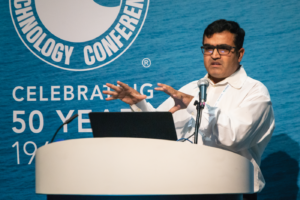
On the process side, it was noted that tens of millions of dollars are spent on major capital projects to take information produced in delivering a project and map it into the asset information structure. This means that significant amounts of data generated often fall through the cracks, hampering organizations’ ability to use that knowledge for future projects. In particular, “engineering has been in a document-based world for decades,” and Mr Krishna questioned whether that was holding the industry back from going forward.
He also cited the API Document Format and Style Manual, which requires the use of bullets to indicate purchaser decision. “If you look at the document-centric world, but I need to put a bullet before a piece of data, how does it work when I send that over to the machine to read that?”
Looking at the third aspect of the roadblock – technology – Mr Krishna advocated for the development of standard taxonomies when developing specifications, which will make the search for and reuse of specifications easier. “In oil and gas, we have a massive data quality issue, but it actually starts with the data standards that underlie it. The inconsistency in application or existence of data standards today will be the data quality issue of tomorrow.”
He pointed to the concept of a data lake, which means having a centralized data repository from where data can be used and updated by multiple parties because they are all using the same data standard. “We’re creating data islands that you can’t connect to something else… and we need to move away from that,” Mr Krishna said. “We need to move to this one source of the truth – the centralized data source.” DC




